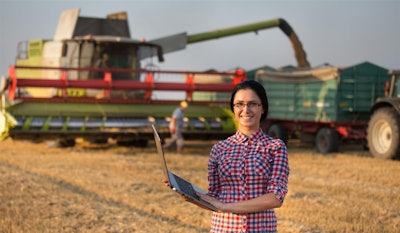
There are plenty of opportunities on the horizon for agriculture, but how the industry operates and who operates it are changing, according to economists who spoke at the American Feed Industry Association’s Purchasing and Ingredients Suppliers Conference on Thursday in Fort Worth, Texas.
“There’s a lot more to be excited about than there is to be nervous about,” said Joseph Kerns of Kerns and Associates. “We may be living in the greatest worldwide expansion since the Reagan administration. … Prospects for U.S. ag are fantastic, but for animal ag, it’s even better.”
Richard Brock of Brock Associates, who also spoke at the conference on Thursday, said there has been dramatic change in the past five years, including consolidation across the industry, such as:
- The U.S. co-operative system has been cut by more than 50 percent and inefficient grain elevators have closed.
- The world’s largest seed genetics and chemical companies are merging, cutting the number of players in the industry by 50 percent. The fertilizer industry has gone through similar consolidation.
- Twenty-five to 30 percent of farm equipment dealers have closed down.
Brock pointed out that farm operators now are larger and more sophisticated than they have been in the past. While, in recent years, 10 percent of row crop producers have changed careers or retired, he said the remaining farmers have solid balance sheets, are more sophisticated and most are more professional.
“There is a new set of players in agribusiness firms and young farmers,” Brock said. “The new generation is more techie and will have a new set of ideas on how things should be done.”
The problem for baby boomers, Kerns said, is that people skills will become more important in agribusiness.
“Who got into farming so they could share their feelings? Nobody,” Kerns said. “The millennial generation is much more equipped to deal with” collaboration and technology.
“The generational transfer of wealth is at our doorstep and (baby boomers) are not prepared for the transition,” Kerns said.

















